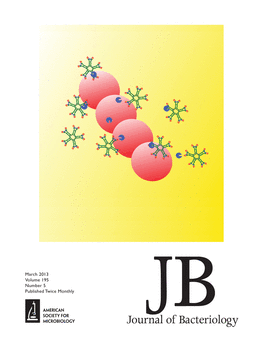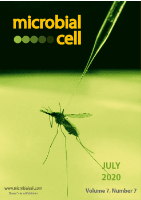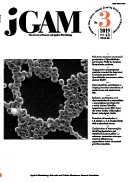
PLASMID
metrics 2024
Advancing the frontiers of molecular biology.
Introduction
PLASMID is a prestigious academic journal published by Academic Press Inc Elsevier Science that focuses on the dynamic field of molecular biology, particularly in the study of plasmids and their roles in gene function and expression. Since its inception in 1977, the journal has built a robust reputation, currently holding a Q3 category ranking in Molecular Biology and positioning itself within the 34th percentile based on Scopus metrics, making it a valuable resource for researchers and professionals alike. With an ISSN of 0147-619X and E-ISSN 1095-9890, PLASMID offers a wealth of articles that delve into cutting-edge research, facilitating knowledge-sharing and inspiring innovations in the field. Although it does not operate under an open-access model, the journal remains committed to advancing scholarly communication and maintaining high standards of academic rigor. Researchers and students engaged in biochemistry, genetics, and molecular biology will find PLASMID to be an essential platform for disseminating their findings and exploring novel ideas.
Metrics 2024
 0.64
0.64 1.80
1.80 2.40
2.40 66
66Metrics History
Rank 2024
Scopus
IF (Web Of Science)
JCI (Web Of Science)
Quartile History
Similar Journals

JOURNAL OF BACTERIOLOGY
Exploring the intersections of bacteria and biology.The JOURNAL OF BACTERIOLOGY, published by the American Society for Microbiology, stands as a pivotal resource in the fields of microbiology and molecular biology. With an impressive history dating back to 1945 and continuing through 2024, this esteemed journal focuses on advancing the understanding of bacterial physiology, genetics, and interactions with hosts. Although it is a traditional subscription-based journal, it maintains rigorous standards of peer review and quality, contributing significantly to its high Q1 and Q2 quartile rankings in microbiology and molecular biology respectively. The journal is an essential platform for researchers, professionals, and students who aspire to disseminate groundbreaking discoveries in the complex world of bacteria. Positioned in the 57th percentile for microbiology on Scopus, it showcases impactful research that informs and inspires advancements in health, biotechnology, and environmental sciences.

JOURNAL OF GENE MEDICINE
Bridging Laboratory Discoveries with Clinical ApplicationsThe Journal of Gene Medicine, published by Wiley, stands as a pivotal resource in the field of gene therapy and molecular medicine, with a rich history of dissemination of impactful research since its inception in 1998. With an ISSN of 1099-498X and an E-ISSN of 1521-2254, this esteemed journal plays a crucial role in advancing our understanding of genetics and drug discovery, reflected in its impressive 2023 Scopus rankings where it holds a Q2 classification in Drug Discovery and Q3 in several genetics-related categories. The journal aims to facilitate the exchange of high-quality research findings that bridge the gap between laboratory and clinical applications, making it an essential platform for researchers, academics, and healthcare professionals committed to the forefront of genetic innovation. Although it does not currently offer open access options, its reputation for rigorous peer review ensures that all published work meets the highest academic standards, providing a reliable reference for scientific inquiry in the United States and beyond. As the field rapidly evolves, the Journal of Gene Medicine remains at the helm, guiding future discoveries with its influential publications and comprehensive insights.

Molecular Cell
Your Gateway to Cutting-Edge Biological Discoveries.Molecular Cell, published by Cell Press, is a leading journal in the fields of cell biology and molecular biology. Established in 1997, this prestigious journal boasts a significant impact within the scientific community, evidenced by its impressive 2023 Scopus rankings, placing it in the top 2% of its field (Rank #10/410 in Molecular Biology, Rank #12/285 in Cell Biology). With a focus on cutting-edge research that bridges the gap between molecular genetics and cellular function, Molecular Cell serves as an essential platform for the dissemination of vital findings and innovative methodologies. Although it follows a traditional publishing model without Open Access options, its rigorous peer-review process and high standards ensure that articles published within these pages are of the utmost quality, making it an invaluable resource for researchers, professionals, and students alike seeking to stay at the forefront of scientific discovery. The journal's address is 50 Hampshire St, Floor 5, Cambridge, MA 02139, United States, reinforcing its commitment to fostering scientific excellence and collaboration.

Microbial Cell
Pioneering discoveries in biochemistry and molecular biology.Microbial Cell is a distinguished open-access journal published by SHARED SCIENCE PUBLISHERS OG, focusing on the dynamic fields of microbiology, biochemistry, and molecular biology. Since its establishment in 2014, Microbial Cell has been at the forefront of disseminating cutting-edge research essential for advancing our understanding of microbial functions and interactions. With a commendable impact factor and ranking in the top quartiles (Q1 and Q2) across several categories, including Applied Microbiology and Biotechnology and Parasitology, this journal serves as an invaluable resource for researchers, professionals, and students alike. It features a comprehensive scope that encompasses the latest findings in genetics, cell biology, and virology, facilitating the academic community's access to high-quality peer-reviewed work. Microbial Cell not only contributes to advancing microbial sciences but also fosters an inclusive platform for knowledge sharing and collaboration in the scientific community.

RUSSIAN JOURNAL OF GENETICS
Exploring the Frontiers of Genetic ResearchRUSSIAN JOURNAL OF GENETICS is a significant platform in the field of genetics, published by PLEIADES PUBLISHING INC since its inception in 1996. With an ISSN of 1022-7954 and an E-ISSN of 1608-3369, the journal focuses on a wide array of topics within genetics, providing researchers, professionals, and students with insights into advancements and discoveries in this ever-evolving discipline. While it currently holds a Q4 ranking in the 2023 Genetics category according to Scopus, representing invaluable opportunities for knowledge dissemination, the journal is actively working to enhance its impact in future rankings. Readers will find the journal a repository of diverse genetic research findings, methodologies, and theoretical advancements. Although it is not an open-access journal, it is committed to serving the academic community through rigorous peer-reviewed articles. With a consistent publication trajectory spanning to 2024, the RUSSIAN JOURNAL OF GENETICS remains a crucial resource for those aspiring to stay at the forefront of genetic research and applications.

MOLECULAR MICROBIOLOGY
Illuminating the Molecular World of MicrobesMOLECULAR MICROBIOLOGY is a prestigious academic journal published by Wiley that has been at the forefront of research in the fields of microbiology and molecular biology since its inception in 1987. With an impressive Q1 rating in Microbiology and a Q2 rating in Molecular Biology for 2023, this journal serves as a vital platform for disseminating high-impact research that advances our understanding of microbial processes and interactions at the molecular level. The journal's ISSN is 0950-382X, and the E-ISSN is 1365-2958, making it easily accessible to a global audience of researchers, professionals, and students. Though not an Open Access journal, MOLECULAR MICROBIOLOGY remains committed to providing valuable insights and fostering knowledge exchange in the academic community. Situated in the United Kingdom and indexed in prominent databases like Scopus, the journal holds a strong standing, with current rankings reflecting its influential role in the academic landscape. Researchers in the field are invited to contribute and engage with cutting-edge discoveries that will shape the future of microbiological sciences.

APPLIED BIOCHEMISTRY AND MICROBIOLOGY
Unveiling New Horizons in Biochemistry and Microbiology.Applied Biochemistry and Microbiology is an esteemed journal published by Pleiades Publishing Inc, focusing on the intricate intersections of biochemistry and microbiology. Established in 1970, with a commitment to advancing scientific knowledge, this journal serves as a vital platform for disseminating innovative research findings in applied microbiology, biotechnology, and biochemistry. With its ISSN 0003-6838 and E-ISSN 1608-3024, the journal operates from its base in New York, USA. As a recognized publication in the field, Applied Biochemistry and Microbiology holds a Category Quartile ranking of Q3 in Applied Microbiology and Biotechnology and Q4 in Biochemistry, reflecting its significant contributions and relevance. Although currently not open access, the journal is indexed in Scopus, with respectable rankings that highlight its impact in the community, making it a pivotal resource for researchers and professionals dedicated to the realms of biochemistry and microbiology.

JOURNAL OF GENERAL AND APPLIED MICROBIOLOGY
Bridging theory and application in microbial science.JOURNAL OF GENERAL AND APPLIED MICROBIOLOGY, published by the MICROBIOL RES FOUNDATION, is a vital resource in the fields of applied microbiology and biotechnology, as well as in diverse medical applications, serving an academic community dedicated to advancing microbial science. Established in 1955, this journal has a rich history of disseminating innovative research and insights into the intricate world of microorganisms. With an ISSN of 0022-1260 and an E-ISSN of 1349-8037, the journal maintains high scholarly standards and robustness, reflected in its 2023 Scopus rankings placing it in the Q3 and Q4 quartiles within its categories. While primarily based in Japan, the journal engages a global audience, offering valuable contributions that inform both theoretical perspectives and practical applications in microbiology. Despite being a non-open-access publication, it provides pivotal research findings essential for academics, professionals, and students alike, fostering a deeper understanding of microbial impact on health and the environment.

Molecular Genetics Microbiology and Virology
Unraveling the Mysteries of Infectious DiseasesMolecular Genetics Microbiology and Virology is an esteemed academic journal published by PLEIADES PUBLISHING INC, specializing in the complex interplay of genetics, microbiology, and virology. Established in 2007, this journal serves as a crucial platform for researchers and professionals committed to advancing our understanding of infectious diseases and molecular biology. Despite its current categorization in Q4 across several fields, the journal aims to evolve and foster significant discourse within the scientific community. While not an open access journal, it provides essential insights and high-quality research articles that contribute to the body of knowledge in molecular genetics and related disciplines. Located in the vibrant research landscape of New York, USA, the journal also encourages new submissions that address cutting-edge research topics and emerging trends in infectious diseases, thereby appealing to both emerging scholars and seasoned experts alike.

Vavilovskii Zhurnal Genetiki i Selektsii
Connecting Theory and Practice in Genetic ResearchVavilovskii Zhurnal Genetiki i Selektsii, with ISSN 2500-0462 and E-ISSN 2500-3259, is a distinguished open-access journal published by the Russian Academy of Sciences, Institute of Cytology and Genetics. Since transitioning to open access in 2013, the journal has been dedicated to advancing research and discourse in the fields of genetics and selection, particularly within agricultural and biological sciences. With a current ranking of Q2 in Agricultural and Biological Sciences and Q3 in Biochemistry, Genetics and Molecular Biology according to Scopus, it serves as a pivotal platform for researchers, professionals, and students to disseminate their findings and collaborate on innovative ideas. The journal, housed in the vibrant academic environment of Novosibirsk, Russia, publishes a diverse range of articles that contribute to the ongoing evolution of genetic studies and practical applications in agriculture. Its commitment to quality and accessibility ensures it plays an essential role in the global scientific community, fostering knowledge that bridges theoretical research and practical implementation.